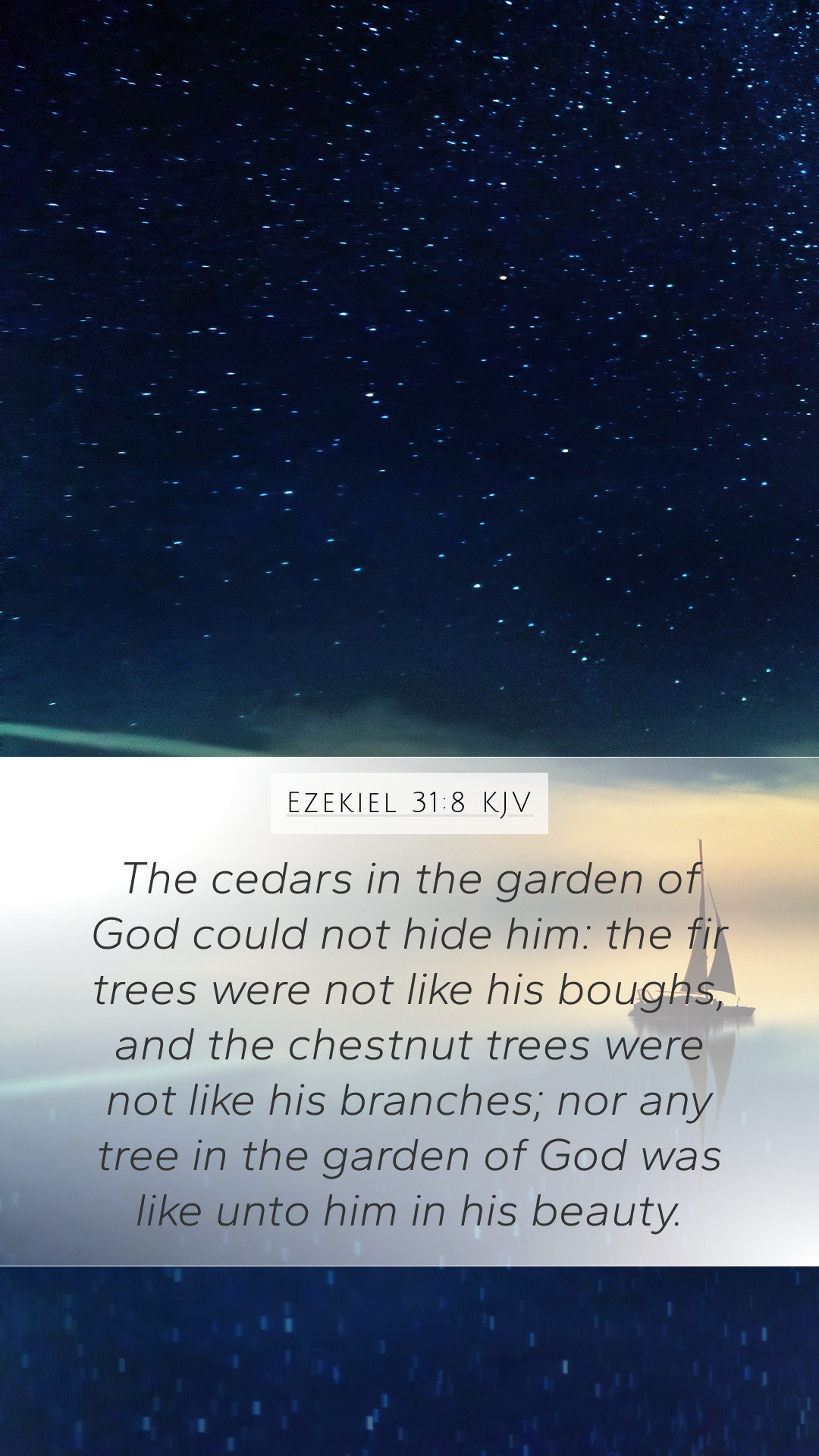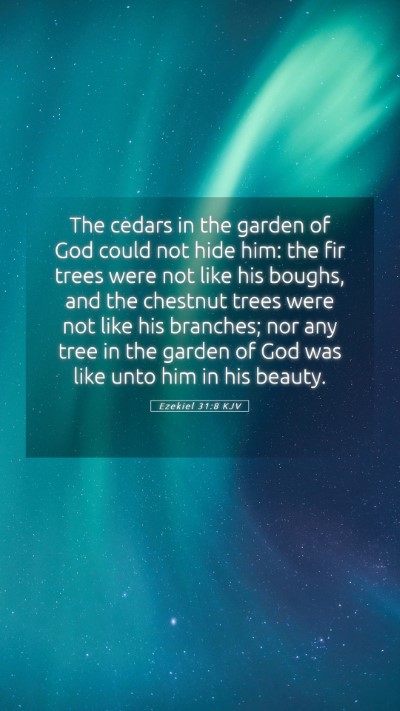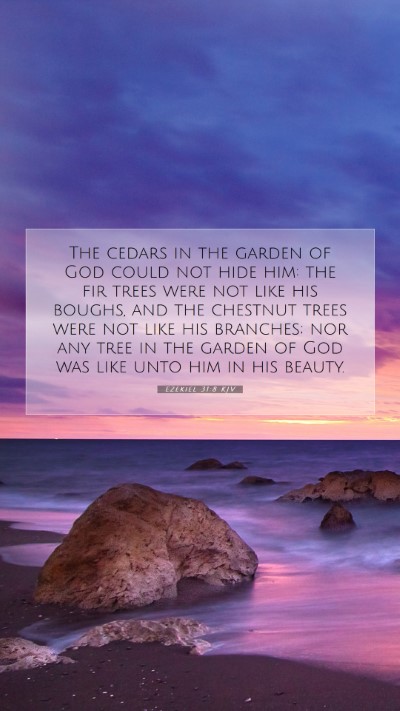Understanding Ezekiel 31:8
Verse: Ezekiel 31:8 (KJV) - "The cedars in the garden of God could not hide him: the fir trees were not like his boughs, and the chesnut trees were not like his branches; nor any tree in the garden of God was like unto him in his beauty."
Bible Verse Meanings
The verse stresses the grandeur and exceptional beauty of the metaphorical cedar tree, which represents powerful kingdoms, particularly Egypt, and its king at the time. The imagery evokes a rich, lush garden, highlighting how there was no other tree that compared to this tree's majesty, much like how no other kingdom compared to that of Egypt’s supremacy in the ancient world.
Bible Verse Interpretations
This passage can be understood on several levels:
- Historical Context: The cedars signify kingships and nations, with Egypt being portrayed as the tallest and mightiest tree among nations.
- Spiritual Significance: The verse reflects on pride and downfall, as even the mightiest can be humbled by divine judgment.
- Symbolism: The "garden of God" symbolizes the world wherein God’s sovereignty prevails.
Bible Verse Commentary
Matthew Henry interprets this verse as a bold assertion of God's sovereignty over powerful nations, particularly pointed at Egypt's arrogance. Albert Barnes emphasizes the isolation of Egypt, stating that despite its majestic splendor, it cannot escape the inevitable judgment of God. Adam Clarke provides insight into the pastoral metaphor, drawing a parallel to how splendor can often precede destruction if disobedience prevails.
Insights from Public Domain Commentaries
- Matthew Henry: Highlights the pride and eventual judgment that comes upon great nations, akin to how a majestic tree can be cut down.
- Albert Barnes: Discusses the absurdity of feeling invincible due to mere physical beauty or strength, noting that God's judgment overrides all.
- Adam Clarke: Points out the transient nature of glory and how it does not guarantee endurance against God’s plans.
Scripture Analysis
This verse serves as both a reminder and a warning about the power and authority of God over earthly rulers. While metaphorically describing the grandeur of Egypt, it ultimately serves to illustrate the temporary nature of human strength and pride.
Application to Daily Life
In today’s world, this verse encourages humility among individuals and nations alike. Just as the beauty of the cedar did not protect it from judgment, neither does human achievement shield us from accountability before God.
Related Bible Cross References
- Ezekiel 31:3-4: Provides context about the cedar’s height and influence.
- Isaiah 2:12: Highlights the day of the Lord against all that is proud.
- Jeremiah 46:17: Refers to Egypt’s downfall.
Additional Resources for Bible Study
If you are looking for deeper insights into this verse or similar passages, consider utilizing the following tools and resources:
- Bible study guides
- Online Bible study groups
- In-depth Bible study courses
- Commentaries on the Book of Ezekiel
Conclusion
Ezekiel 31:8 illustrates the theme of human pride versus divine authority, providing profound lessons that transcend time. This verse encourages believers to cultivate humility in light of God’s ultimate sovereignty, underscoring the importance of aligning oneself with God’s will while recognizing the fleeting nature of worldly power.


